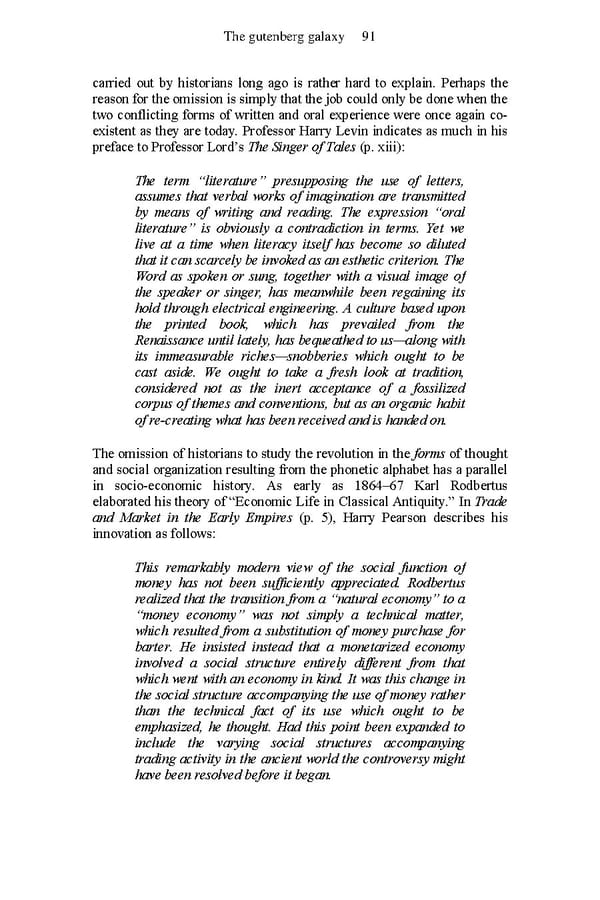The gutenberg galaxy 91 carried out by historians long ago is rather hard to explain. Perhaps the reason for the omission is simply that the job could only be done when the two conflicting forms of written and oral experience were once again co- existent as they are today. Professor Harry Levin indicates as much in his preface to Professor Lord’s The Singer of Tales (p. xiii): The term “literature” presupposing the use of letters, assumes that verbal works of imagination are transmitted by means of writing and reading. The expression “oral literature” is obviously a contradiction in terms. Yet we live at a time when literacy itself has become so diluted that it can scarcely be invoked as an esthetic criterion. The Word as spoken or sung, together with a visual image of the speaker or singer, has meanwhile been regaining its hold through electrical engineering. A culture based upon the printed book, which has prevailed from the Renaissance until lately, has bequeathed to us—along with its immeasurable riches—snobberies which ought to be cast aside. We ought to take a fresh look at tradition, considered not as the inert acceptance of a fossilized corpus of themes and conventions, but as an organic habit of re-creating what has been received and is handed on. The omission of historians to study the revolution in the forms of thought and social organization resulting from the phonetic alphabet has a parallel in socio-economic history. As early as 1864–67 Karl Rodbertus elaborated his theory of “Economic Life in Classical Antiquity.” In Trade and Market in the Early Empires (p. 5), Harry Pearson describes his innovation as follows: This remarkably modern view of the social function of money has not been sufficiently appreciated. Rodbertus realized that the transition from a “natural economy” to a “money economy” was not simply a technical matter, which resulted from a substitution of money purchase for barter. He insisted instead that a monetarized economy involved a social structure entirely different from that which went with an economy in kind. It was this change in the social structure accompanying the use of money rather than the technical fact of its use which ought to be emphasized, he thought. Had this point been expanded to include the varying social structures accompanying trading activity in the ancient world the controversy might have been resolved before it began.
 Essential McLuhan Page 97 Page 99
Essential McLuhan Page 97 Page 99